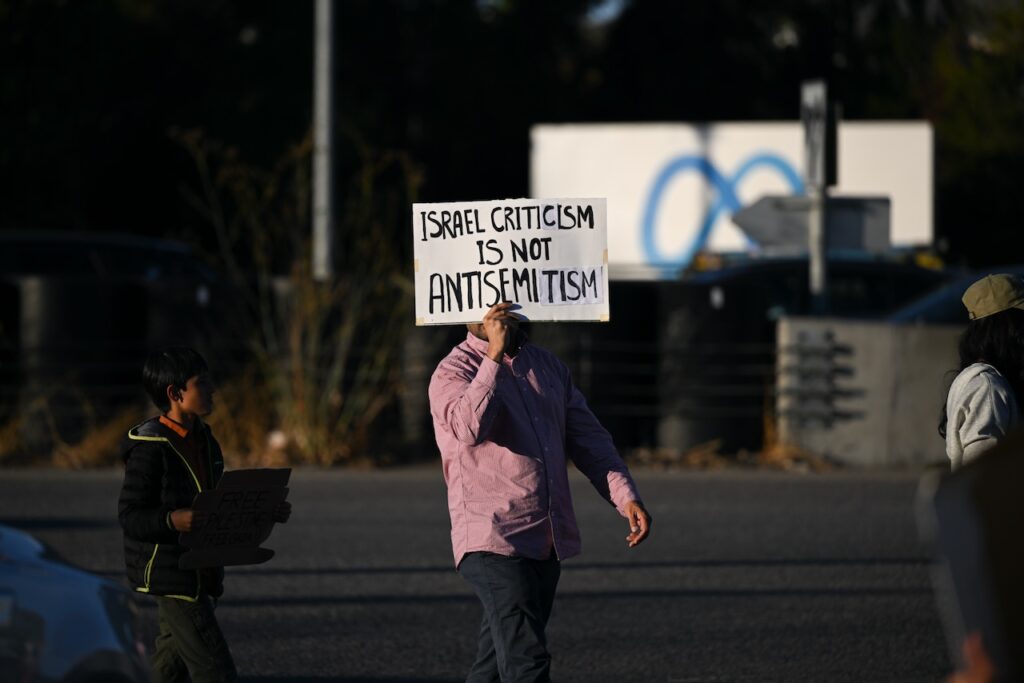A coalition of 73 international organizations demand Meta refrain from censoring criticism of zionism on its platforms.
This statement was originally published on 7amleh.org on 11 February 2024.
Dear Mr. Zuckerberg,
We, a group of concerned 73 civil society organizations, write to you today in support of a safe, fair, and a free digital space for all people. As the United Nations Human Rights Council has repeatedly reaffirmed, “The same rights that people have offline must also be protected online.” With this in mind, and society’s increased reliance on social media to understand current world events, Meta’s responsibility has never been greater. In particular, in alignment with the recent International Court of Justice’s preliminary ruling in South Africa’s case brought against Israel, we implore Meta to take drastic measures to ensure your platforms are not contributing to harm and violence for anyone in Palestine and Israel.
Specifically, we are deeply concerned about Meta’s proposed revision of its hate speech policy regarding the term “Zionist” and the potential to treat it as a proxy for Jewish and/or Israeli, which will ultimately lead to severe restrictions on legitimate political speech and debate. “Zionist” cannot be separated from the political ideology of “Zionism,” and both terms are explicitly unique and different from Jewish and/or Israeli identities. The proposed policy would too easily mischaracterize conversations about Zionists — and by extension, Zionism — as inherently antisemitic, harming Meta users and undermining efforts to dismantle real antisemitism and all forms of racism, extremism and oppression. Treating “Zionist” as a proxy will also encourage the incorrect and harmful conflation of criticism of the acts of the state of Israel with antisemitism. We cannot dismantle antisemitism if we are blocked from voicing our opinions and sharing our experiences with each other. We can discuss, debate and even disagree, as long as we share the belief that all of us deserve safety, freedom, and dignity. We ask Meta to not erect barriers impeding users from connecting with each other as we engage in this work.
This is the wrong solution to a real and important problem: those who fuel antisemitism online will continue doing so, with or without the word “Zionist.” In fact, many antisemites, especially among white supremacists and evangelical Christian Zionists, explicitly support Zionism and Israel, while engaging in speech and actions that dehumanize, insult, and isolate Jewish people. Importantly, this move will prohibit Palestinians from sharing their daily experiences and histories with the world, be it a photo of the keys to their grandparent’s house lost when attacked by Zionist militias in 1948, or documentation and evidence of genocidal acts in Gaza over the past few months, authorized by the Israeli Cabinet, which includes members of the Religious Zionist Party. And it would prevent Jewish users from discussing their relationships to Zionist political ideology.
This proposed policy change won’t keep any of us safe, and does not align with normative international human rights standards. Furthermore, since the War on Gaza began, hate speech and incitement to violence online against Palestinians is at an all time high. Not only will this proposal be ineffective at combating antisemitism, it entirely ignores the digitally fueled oppression of Palestinians at a time when multiple courts and human rights experts around the world have affirmed the plausibility that a genocide is happening in Gaza and ordered all international actors to do whatever they can to prevent further harm. We call upon Meta to recognize its crucial role and responsibility, to adhere to business and human rights principles as well as international human rights laws in safeguarding freedom of expression, and to not treat “Zionist” as a proxy in your hate speech policy but instead implement policy changes that will actually create a safer digital space for all.
Sincerely,



